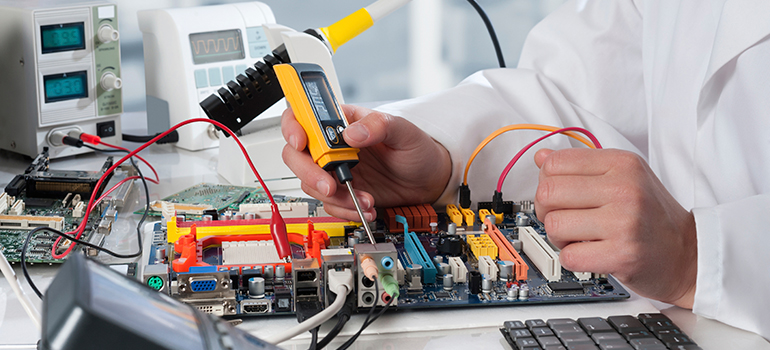Arc Flash Testing Solutions

Identify potential risks and stay compliant with our comprehensive Arc Flash Program
What is an Arc Flash?
An Arc Flash is a dangerous and potentially deadly electrical explosion that occurs when an electric current jumps across a gap between two conductive objects. This can happen when there is a fault in an electrical system, such as a short circuit, which causes a sudden release of energy that creates a bright flash of light, heat, and pressure.
Arc flashes can occur in a variety of settings, including industrial facilities, power plants, and even residential homes. They can be caused by a variety of factors, including faulty equipment, improper maintenance, and human error. The high levels of energy released in an arc flash can cause serious injury or death to anyone nearby, as well as damage to equipment and infrastructure.
Benefits of Arc Flash Testing
Arc flash testing is an important part of the process of evaluating and mitigating the risks of arc flash incidents. Here are some of the benefits of arc flash testing:
- Risk assessment: Arc flash testing helps to identify the specific hazards and risks associated with electrical equipment in a particular setting. By conducting testing, it is possible to determine the likelihood and severity of an arc flash event, and to develop appropriate safety measures to reduce the risk.
- Safety: Arc flash testing helps to ensure that the appropriate safety measures are in place to protect workers from the risks of arc flash incidents. By identifying the appropriate personal protective equipment (PPE) and other safety measures, such as safe work practices and equipment maintenance procedures, the risk of injury or death can be significantly reduced.
- Compliance: Many industries are subject to regulations and standards that require arc flash testing to be performed. By conducting testing and implementing appropriate safety measures, companies can ensure compliance with these regulations and avoid potential fines or legal liabilities.
- Equipment protection: Arc flashes can cause significant damage to electrical equipment, leading to costly downtime and repair. By identifying potential hazards and implementing appropriate protective measures, such as current-limiting fuses and circuit breakers, equipment damage can be minimized.
- Cost savings: While arc flash testing may require an initial investment of time and resources, it can ultimately result in cost savings by reducing the risk of accidents and equipment damage. This can lead to lower insurance premiums, reduced downtime, and improved productivity.
Overall, arc flash testing is an important tool for evaluating and mitigating the risks of arc flash incidents, improving safety, protecting equipment, and ensuring compliance with regulations and standards.
Intertek's Arc Flash Testing Solutions
Our Arc Flash Hazard Analysis and Labelling program helps you navigate compliance requirements with the confidence that our engineers bring with their years of experience and specialized knowledge.
The Occupational Safety and Health Administration (OSHA), the National Fire Protection Association (NFPA 70E), and the National Electrical Code (NEC) have stringent compliance requirements in place addressing electrical safety requirements for workplaces and the practical safeguarding of employees. Failure to comply with requirements may result in significant fines levied by OSHA.
Working with Intertek will allow you to:
- learn how to Identify potential electrical risks on your work site
- take the right steps to improve electrical safety standards on your work site
- prove compliance with regulatory requirements of OSHA, NFPA, and NEC
- provide practical safeguards for your employees



